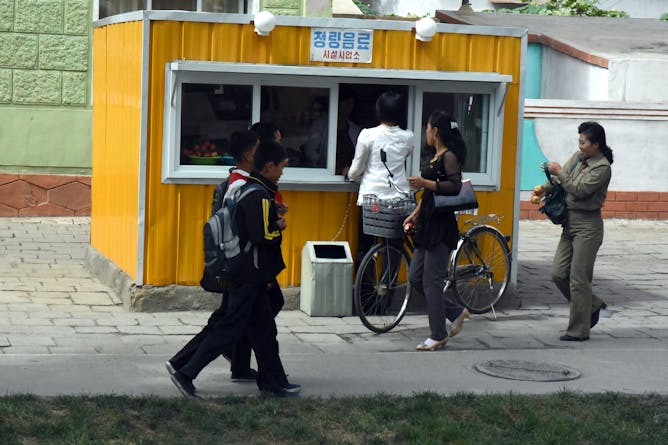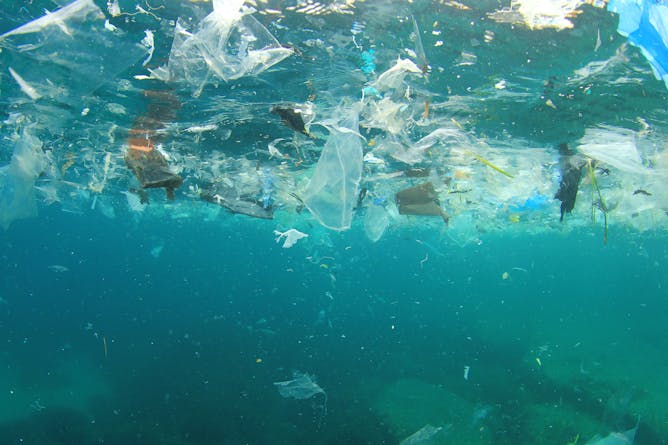|
High heels, lace and handbags. In recent decades, there’s been a huge shift in the role of North Korean women and the choices they’re able to make – including what they wear.
In this episode of The Conversation Weekly podcast, we hear about new research on how North Korean women are driving a new form of grassroots capitalism, and changing the country in the process. Scroll down for more highlights from around the editions of The Conversation this week.
|

Small shops, many run by women, are a common sight in North Korea.
Lesley Parker
Gemma Ware, The Conversation
Bronwen Dalton and Kyungja Jung explain how North Korean women are driving a new form of grassroots capitalism. Listen to The Conversation Weekly podcast.
|

So much ocean plastic originates from sources on land, but once floating in the sea it poses a risk to marine wildlife and habitats.
Rich Carey/Shutterstock
Samantha Garrard, Plymouth Marine Laboratory
As it travels around the ocean, plastic litter can harm wildlife and marine habitats in many ways. This study highlights five key hotspots where floating plastic poses the biggest risk.
|
|
|
-
Michael A. Rawlins, UMass Amherst; Ambarish Karmalkar, University of Rhode Island
A new study shows how thawing permafrost and intensifying storms will change how water moves into and through Arctic rivers.
-
Tracey Holmes, University of Canberra
While Sam Kerr is entitled to the presumption of innocence as she prepares for her trial almost a year away, Football Australia’s challenges are more immediate.
-
Yang Gao, King's College London
The next generation of spacesuit needs to do more than simply protect an astronaut from the vacuum of space.
-
Jared Mondschein, University of Sydney
The former president’s political obituary has been written many times over the past decade. Yet his support among Republicans has rarely dipped below 70%.
-
Haley McEwen, University of Gothenburg
Ultra-conservative pro-family groups finance campaigns to influence the policies of governments and schools.
-
Julie Gammon, University of Southampton
Not the dandy highwayman of popular imagination, Dick Turpin was a violent and, according to records, ugly criminal.
|
|